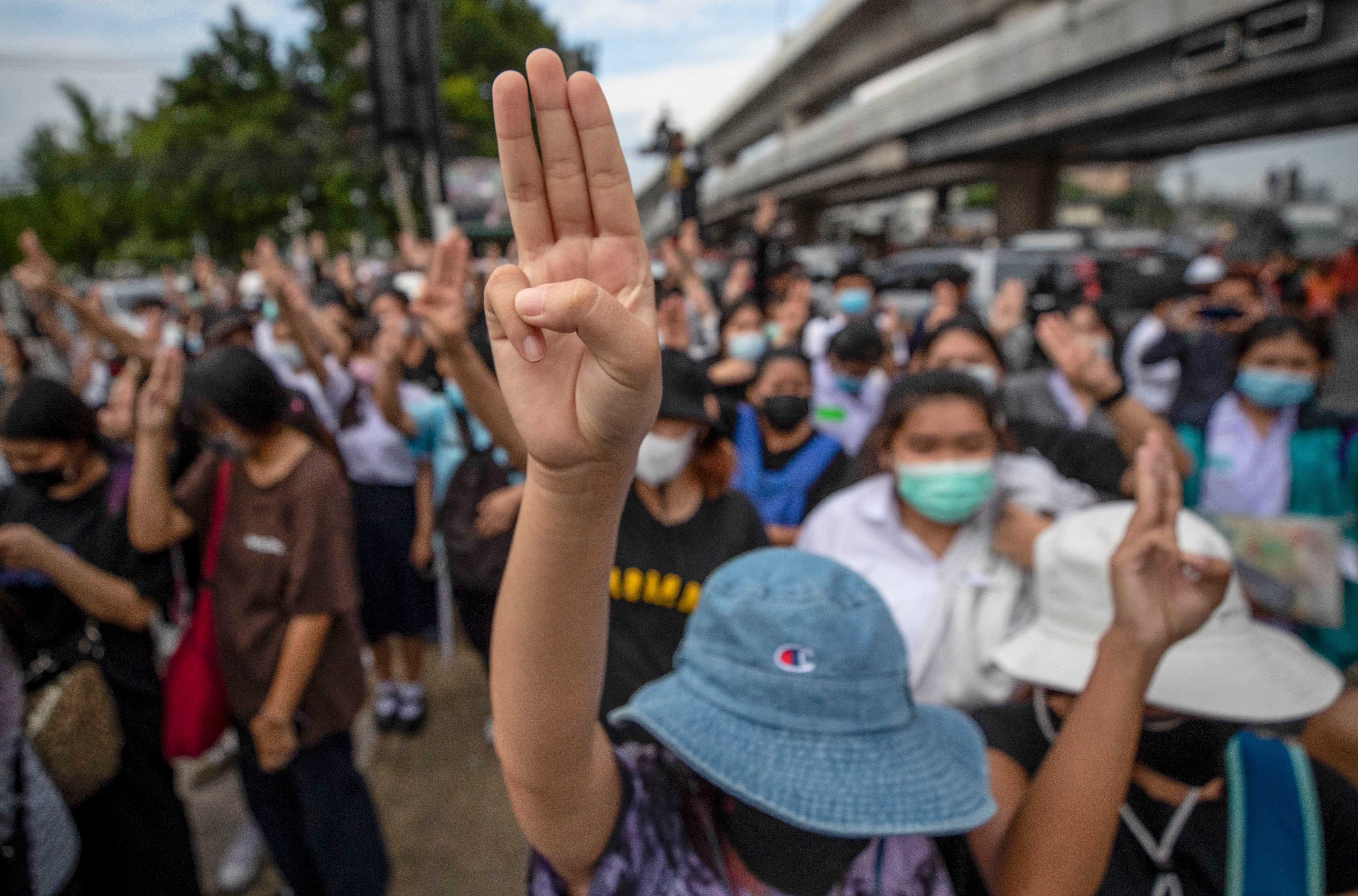Thai Cabinet approves Parliament session to debate protests
Thailand’s Cabinet has approved a request to recall Parliament for a special session to deal with the political pressures from ongoing anti-government protests

Your support helps us to tell the story
From reproductive rights to climate change to Big Tech, The Independent is on the ground when the story is developing. Whether it's investigating the financials of Elon Musk's pro-Trump PAC or producing our latest documentary, 'The A Word', which shines a light on the American women fighting for reproductive rights, we know how important it is to parse out the facts from the messaging.
At such a critical moment in US history, we need reporters on the ground. Your donation allows us to keep sending journalists to speak to both sides of the story.
The Independent is trusted by Americans across the entire political spectrum. And unlike many other quality news outlets, we choose not to lock Americans out of our reporting and analysis with paywalls. We believe quality journalism should be available to everyone, paid for by those who can afford it.
Your support makes all the difference.Thailan ’s Cabinet on Tuesday approved a request to recall Parliament for a special session to deal with the political pressures from ongoing anti-government protests.
The Cabinet at its weekly meeting approved the request, which calls for a non-voting session on Oct. 26-27.
The request for the session came from House speaker Chuan Leekpai, who said Monday that both government and opposition parties supported it. Prime Minister Prayuth Chan-ocha had already said earlier that he supports the move.
There is a deadlock between the government and the student-led protesters, who want Prayuth step down, the constitution to be amended to make it more democratic, and reforms to the monarchy to have it conform to democratic norms.
The protesters charge that Prayuth, an army commander who led a 2014 coup, was returned to power unfairly in last year’s general election because laws had been changed to favor a pro-military party. The protesters say a constitution written and passed under military rule is undemocratic.
But their more recent demand for checks and balances on the monarchy has deeply angered conservative Thais — and broken a taboo since the monarchy is considered sacrosanct and tough laws protecting it from insult mean its role is not usually discussed openly. It has also raised the risk of confrontation in a country where calls for political change have a history of being met with military intervention or even violence.
The government has sought to weaken the protesters’ resolve over the past week with arrests of their leaders, declaring a state of emergency for Bangkok making all rallies illegal, and trying to physically impede their gatherings, including by closing mass transit stations.
However, when it sent riot police backed by water cannons to break up a rally in Bangkok on Oct. 16, it only drew widespread criticism for the use of force, and failed to discourage the protesters, who have continued to gather in large numbers every day. Protests have also spread to other provinces.
Parliament in September made its first attempt at dealing with one of the protesters demands when it was scheduled to vote on six proposed constitutional amendments. But the vote was canceled at the last minute as Parliament voted instead to set up a committee to further consider such proposals.
Constitutional changes require a joint vote of the House and the Senate, but it was clear that the proposals lacked enough support in the Senate, whose members are not elected and are generally very conservative and hostile to the protesters.
Police announced Monday that they were seeking to impose censorship on media reporting of the protests, citing what they called “distorted information” that could cause unrest and confusion in society.
They said they sought to block access to the online sites of four Thai news organizations and one activist group that broadcast live coverage of the protests. They also proposed a ban on over-the-air digital television coverage of one broadcaster, Voice TV.
Thai media reported Tuesday that a court ordered that Voice TV stop broadcasting on all platforms. The company, which was founded by the son of former Prime Minister Thaksin Shinawatra, ousted in a 2006 military coup, has been sympathetic to the protest movement in its coverage.
The government also confirmed that it would try to block use of the Telegram messaging app by protest groups, who announced on Sunday they would use it for organizing because they feared they might be blocked on other platforms, such as Facebook.